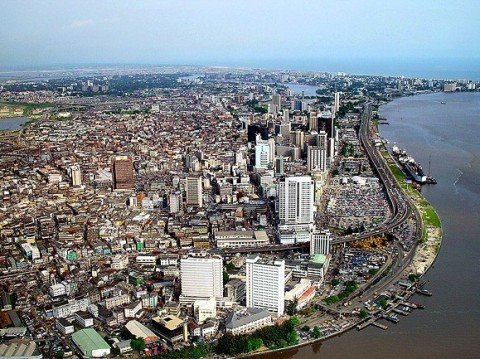I am pleased to announce the publication of my new book on fragile states — Betrayed: Politics, Power and Prosperity (Palgrave Macmillan). The book focuses on...
Seth Kaplan
Can Empowered Cities Save Fragile States? My article on Lagos in the NYT
Nigeria is arguably the worst run of the world’s seven most populated countries. Despite earning hundreds of billions of dollars in oil revenue over the past...
Can Cities Change the Politics of Fragile States?
Discussions about how to fix fragile states usually start and end with national level politics and institutions. But what if the key to improving their...
What Have We Learned About Institutional Change?
A number of noteworthy reports on institutional change, development, and foreign aid have been published recently. There is much agreement between them,...
Seven Scenarios for the Future of Syria
As the war in Syria drags on, it is becoming ever more vicious. Militias kill hundreds of civilians, ethnic cleansing large swaths of the country in the...
Are the g7+ and Donors Heading for a Clash?
The g7+ group of 18 fragile and conflict-affected states has joined together to share experiences and promote a new development framework in what are the most...
Power and Politics in Pakistan: A Limited Access Order
The Limited Access Order (LAO) conceptual framework is an excellent way to understand why developing countries work the way they do, analyze their political...
What the World Bank Does Not Understand About “Doing Business”
In its 10-year history, the World Bank’s Doing Business Report has achieved enormous influence. The annual study, one of the flagship knowledge products of...
Social Covenants: The Missing Ingredient in State Building Efforts
Political theorists have for the most part focused on the state when thinking about how to make countries work better for their populations. This has...
What the OECD Does Not Understand About Fragile States
The Organisation for Economic Co-operation and Development (OECD) Development Assistance Committee (DAC) and its International Network on Conflict and...
Discordant Development – Can Progress Increase Instability?
Samuel Huntington argued in his 1968 classic Political Order in Changing Societies that rapid development could be highly destabilizing: Social and economic...
Do development indicators deceive us? Here is a better approach
Measuring how countries perform is all the rage. Everyone from the World Bank to Bertelsmann to Africa’s most famous entrepreneur does it, producing indices...
The problems with economists: they don’t understand development
Economists dominate the development field, but politics is more important to promoting it. This contradiction explains why the policies often recommended by...
Can Foreign Aid Improve Pakistan ’s Political Economy?
Like many struggling countries, Pakistan’s two most critical problems are feckless leaders and a feeble state. Can donors do anything to help get such...
Course on Fragile States in Washington, DC
I will be teaching a course this fall (780.718 Promoting Development in Fragile States) in the Paul H. Nitze School of Advanced International Studies (SAIS)...
Are Language Policies Increasing Poverty and Inequality?
Language is one of the most neglected areas in the development field. It barely registers on any agenda to help poor countries despite its importance to a...
Promoting Human Rights in Less Developed Countries
A key challenge faced by those engaged in international human rights policy and practice is adopting an effective framework for protecting and promoting human...
Improving the Rule of Law in Fragile States
Many fragile states suffer from incoherent legal systems. Whereas in developed countries, one single system exists and is effectively enforced, in fragile...
Why We Blog
Why do you blog ? From the New York Times Book Review.
Do We Understand the Difference Between Fragile States and Transition Countries?
The term “fragile states” is much abused. Policymakers, development researchers, politicians, and the media seem to think that every country experiencing a...
More from Global Dashboard
Let’s make climate a culture war!
If the politics of climate change end up polarised, is that so bad? No – it’s disastrous. Or so I’ve long thought. Look at the US – where climate is even more polarised than abortion. Result: decades of flip flopping. Ambition under Clinton; reversal...
Big Elephants and Small Islands: getting beyond the New Aid Orthodoxy
Official development assistance (ODA) – or aid – is a small but conspicuous pillar of the international order, and its frailties are being exposed by COVID as surely as those of the other foundations of this order. The assumptions underpinning aid and its management...
Uncertainty and Humanitarian Action: What Donald Rumsfeld can teach us
Since its onset, one striking feature of the coronavirus pandemic (COVID-19) has been the narrative power of its novelty. This global narrative depicts COVID-19 pushing humanity towards a ‘historical divide’ of BC and AC (before and after COVID-19), where unknown,...





